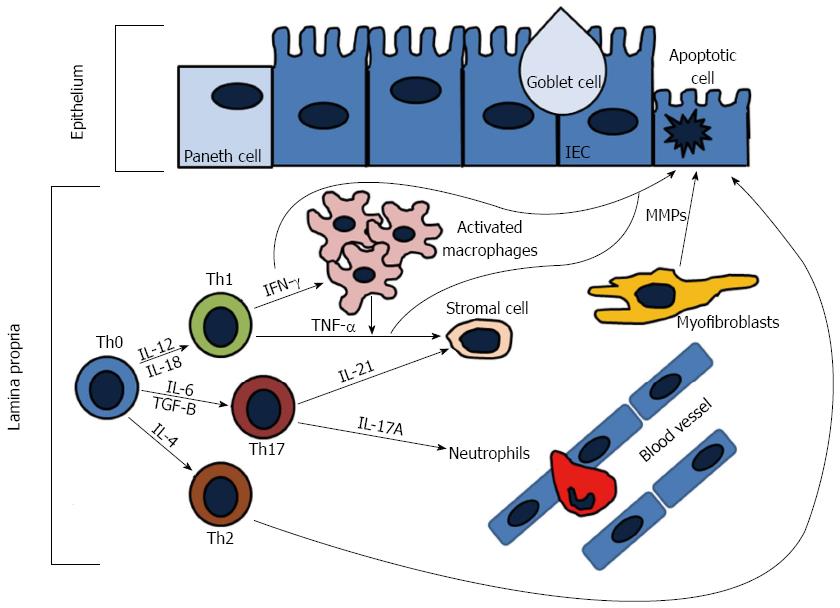Copyright
©2014 Baishideng Publishing Group Co.
World J Gastroenterol. Jan 7, 2014; 20(1): 6-21
Published online Jan 7, 2014. doi: 10.3748/wjg.v20.i1.6
Published online Jan 7, 2014. doi: 10.3748/wjg.v20.i1.6
Figure 3 Adaptive immune responses in the gut.
During active inflammation, naïve T-cells (Th0) differentiate into T helper cell types (Th1, Th2, Th17) under stimulation of different cytokines. Th1 cells produce interferon (IFN)-γ and tumor necrosis factor (TNF)-α. IFN-γ activated tissue macrophages to produce additional TNF-α, which causes epithelial cell apoptosis and differentiation of stromal cells into myofibroblasts. Activated myofibroblasts produce metalloproteinases (MMPs) that cause tissue degredation. Th2 cells produce interleukin (IL)-13 that can increase intestinal permeability and induce epithelial apoptosis. Th17 cells release IL-17A, which plays a role in recruiting neutrophils to sites of active inflammation, and IL-21 that also induces MMP production that contributes to extracellular matrix degredation.
- Citation: Wallace KL, Zheng LB, Kanazawa Y, Shih DQ. Immunopathology of inflammatory bowel disease. World J Gastroenterol 2014; 20(1): 6-21
- URL: https://www.wjgnet.com/1007-9327/full/v20/i1/6.htm
- DOI: https://dx.doi.org/10.3748/wjg.v20.i1.6









